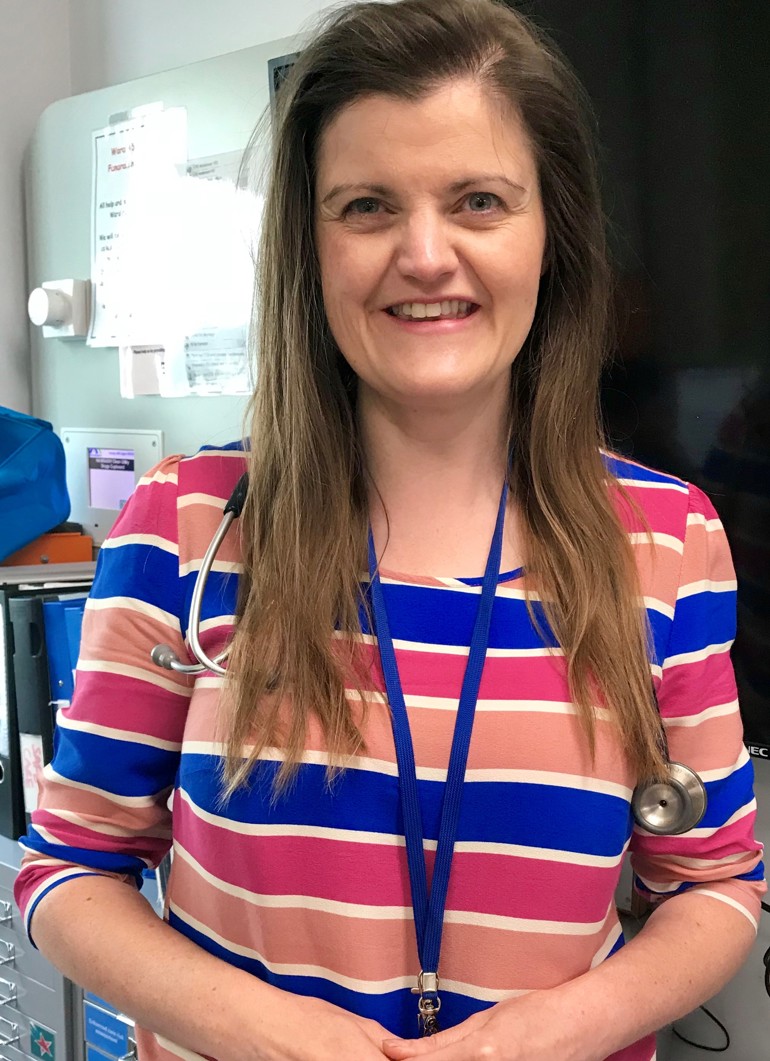Welcome to Respiratory Futures, Dr Llinos Jones. We are keen to hear about the work you are doing to develop resources for your asthma patients who do not have English as their first language. Can you explain a little more about how why this is so important for your service?
We know that around 20% of our patients in Bradford and Dewsbury are from South Asian backgrounds. I am very aware of the need to provide educational materials in languages appropriate to our patient populations, and it has become apparent that there is very little patient information on Asthma written in Urdu.
To me this feels like a health inequality we need to address. I know that education is key to ensuring patients adhere to their treatment and stay as well as possible and I am desperate to ensure that I can provide appropriate information to as many of patients and their carers as possible.
I hope that involving patients and the local community while developing the resources means we will produce something sensible and accessible.
Providing asthma information in Urdu is clearly a very important issue. How did you start out?
Initially, I wanted to find out what was happening in other areas. I made contact with a fantastic team in Leicester – the South Asian Respiratory Initiative (SARI group). This group had completed some really important research to understand the scale of the issue and they were very happy to share their data. So, equipped with the evidence to demonstrate there is a problem, we were able to jump straight to thinking about things that could be done to help address it.
What are you aiming to produce to support this group of patients?
My instinct is that the first thing we need are some resources that introduce the idea of asthma and outline the key words we use in clinic. There is then information needed about inhaler use. There are lots of clips for instance online in English, but I’ve not found anything in other languages
We are also being more ambitious and aim to develop an app, and possibly some community based projects.
20%
patients in Bradford and Dewsbury from South Asian backgrounds
Is it as simple as translating existing materials or is more needed?
Initially, I thought we may be able to translate an existing leaflet, but now I understand that it is important to provide something culturally relevant.
The goal is to help patients to feel more empowered to manage their asthma, and I hope they will then attend clinic appointments more frequently and we can work together to keep their disease more stable.
Who is working with you on this project?
I’ve teamed up with the Bradford asthma group, and Dr Dinesh Saralaya and I have received much appreciated encouragement and support from the Yorkshire Asthma MDT. I am incredibly lucky to have the support of a few of my patients who are helping me to understand more about cultural differences. For example, I now appreciate that some of my patients are excluding specific food groups to try and manage their disease. It’s also humbling to realise the impact that a lack of understanding of the disease has from patients themselves. Just the other day, a very allergic asthmatic patient told me through an interpreter that he was so worried about the stigma attached to his coughing that he was virtually housebound apart from going to work. He hadn’t attended family events – weddings, funerals etc for some time.
What do you see as the main challenges?
I hope that involving patients and the local community while developing the resources means we will produce something sensible and accessible and we can avoid producing materials that are of little relevance to our target population.
We plan to keep evaluating the success of the project in terms of uptake of the resources produced
You seem very keen to learn from other projects. Would you be willing to share your experience and resources with others?
Absolutely. I am confident that I am not the only person working to produce literature in languages other than English and I would love to hear how others have gone about this. I wonder if using illustrations and infographics could work well and I would really like to hear from people.
I am very happy to share what we are doing in Dewsbury and Bradford – nothing we produce is going to be protected for use by just our patients.
Brilliant, thank you Dr Llinos Jones. If you are working on a similar project, please do get in touch with Llinos at the details below or email us at contact@respiratoryfutures.org.uk



